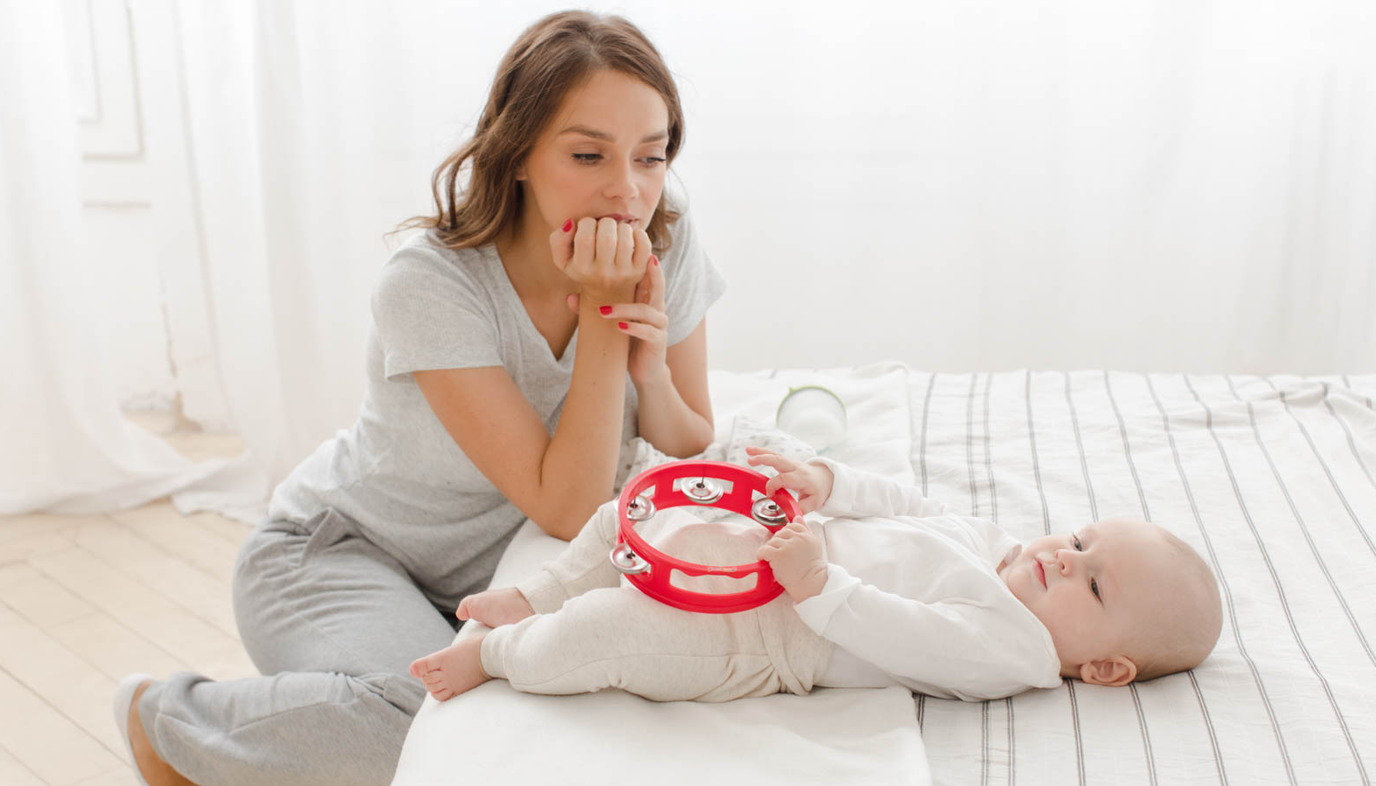
New moms have plenty to worry about. Your baby is so tiny and helpless, there are so many new things to learn, and you’re probably not getting enough sleep. However, many moms share the same fears, and talking about them somehow makes them seem less frightening. Here are some of the most common fears, and some ways to ease your mind:
Losing Your Baby
There’s not really any way to gloss it over: The one thing that new moms fear the most is losing their babies, whether through SIDS or some unforeseen accident.
While SIDS is a very real fear, it may be comforting to know that with all of the information that parents receive about SIDS today, the number of SIDS fatalities is going down. According to the American SIDS Institute, the rate of SIDS has fallen over 50 percent since 1983, down to 2,500 cases per year in the United States. Of course, that number is still too high, but it reflects only a tiny fraction of infants born in the U.S. Also, new moms can do many things to greatly reduce the risk of SIDS for their babies. Experts say the most important thing you can do is to put your baby to sleep on his back, on a firm mattress free of pillows or heavy coverings, in a crib in his parents’ room (and keep your baby away from tobacco and other smoke).
One additional note of caution: A recent study found an increase in accidental suffocation and strangulation in bed among infants. That’s why it is so important to create the proper sleep environment for your baby. If you know that your infant is sleeping in a safe place, clear of all hazards, you too will be able to rest easier at night.

Abduction
Aside from losing their babies, new moms also fear infant abduction. While the notion of someone taking your baby is terrifying, it is again a minuscule risk. According to the National Center for Missing and Exploited Children, there were only five infant abductions (by individuals who were not parents or guardians) out of more than four million births in 2008, and all five were recovered unharmed. So the chances are infinitesimal.
Still, there are plenty of things you can do to minimize the risk. Before the baby is born, ask the hospital or birthing facility about their security procedures to protect infants. When you are still in the hospital, never leave the baby unattended in your room, even if you are simply going to the bathroom. Do not give your child to anyone without full and proper hospital identification. Once you are home, consider the risks before putting an announcement in the paper or putting signs and balloons outside your house. Also, never leave your child alone at the house or in the car, and always be wary of strangers wanting to hold or ask questions about your baby.
High Fevers
When your infant has a fever, it can be incredibly scary, and it often happens at night when your fears tend to run wild. If your infant under three months old has a fever (defined as a rectal temperature over 100.4 F in a baby), call your doctor because young babies tend to get sick very quickly. You can help cool your baby down by keeping her room at a comfortable (not too warm) temperature, dressing her in light, loose cotton pajamas, and/or giving her a cool bath. With your doctor’s approval, you may also give an older baby acetaminophen (Tylenol) or ibuprofen (Motrin). And try to stay calm – more than likely the fever will subside before the end of the night.
Leaving Your Baby
All moms have a protective instinct about their tiny little ones, and handing them over to someone else is always difficult. Before you let anyone else care for your baby, spend some time with that person and watch how he or she interacts with the baby. Don’t leave until you are sure that you feel comfortable with that person. Also, don’t worry about your baby developing other attachments. It’s healthy for them to learn and trust others besides mom; your baby will love you just as much when you return.

Underfeeding/Overfeeding
Babies can’t talk, and it can be difficult to tell if they’re too full or still hungry. That’s why many moms worry about either feeding their babies too much or too little. Breastfeeding moms don’t worry as much about overfeeding (if your baby is not hungry, she won’t nurse) as underfeeding. The good news is, if your baby needs more food, she’ll keep coming back for more, and your body will start producing more milk in response. But if she still seems hungry after nursing, and/or if she’s not gaining enough weight, check with your doctor.
For formula-fed babies, the concern is usually about overfeeding. Make sure your baby takes his time with the bottle – stopping to burp when necessary – and don’t force him to finish the whole bottle if he’s not interested. Pushing the bottle away is one of his first ways of telling you he’s had enough. If his weight gain is within normal ranges, you are probably doing just fine.
Not Meeting Developmental Milestones
When your friend’s little boy rolls over before yours, or your sister’s little girl gets head control before yours, it’s hard not to compare and worry about developmental milestones. However, each baby has his own individual timetable, and chances are good that your baby is right on track. He may be the last one to walk, for example, but he may be the first to talk. Unless your child is dramatically behind on all milestones (in which case, you should consult with your doctor), you should continue to encourage him to try new things, and know that he’ll get there sooner or later.
Not Being a Good Mom
Every mother fears being a “bad mom” at some point, but the reality is, there’s no such thing as a perfect mom. All you can do is try to be the best mother you can for your child or children, and let the little things go. As long as you continue to give them your time, your attention, and your love, you are probably doing a pretty good job.
